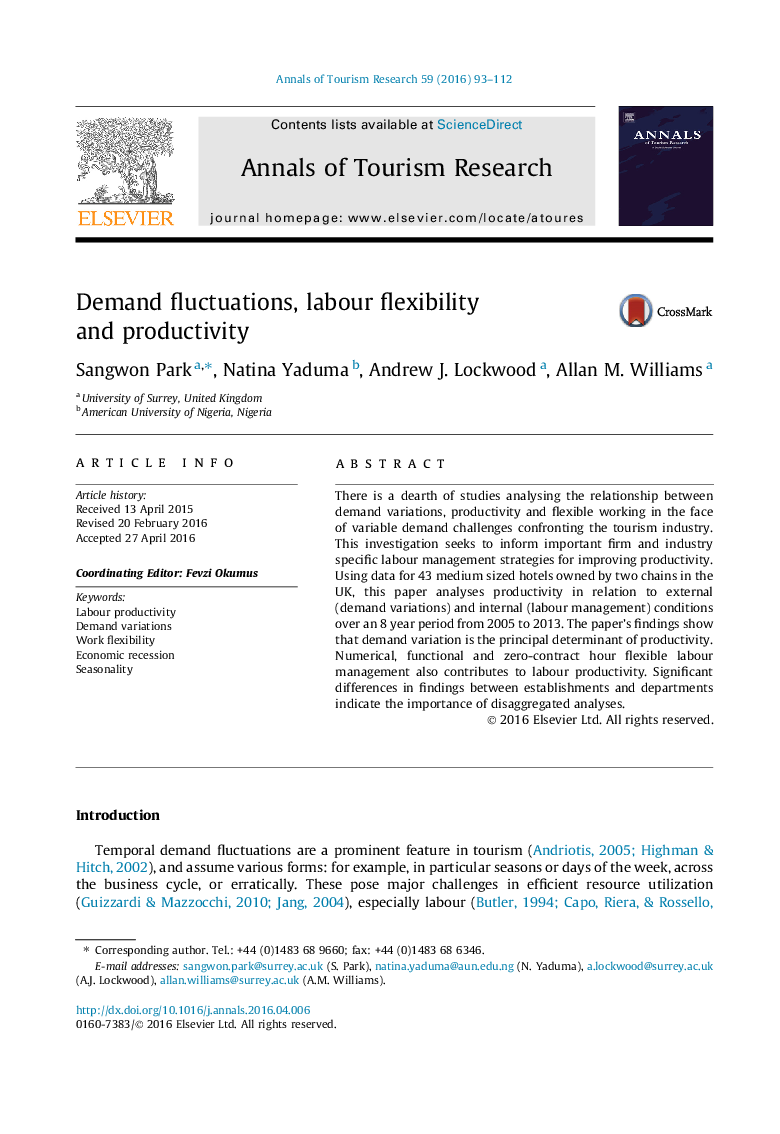| Article ID | Journal | Published Year | Pages | File Type |
|---|---|---|---|---|
| 1006963 | Annals of Tourism Research | 2016 | 20 Pages |
•Temporal demand variation is a core determinant of labour productivity.•The effects are heterogeneous at the departmental and establishment level.•Different forms of flexible working significantly influence productivity.•The effects of functional and numerical flexibility are scale-specific.
There is a dearth of studies analysing the relationship between demand variations, productivity and flexible working in the face of variable demand challenges confronting the tourism industry. This investigation seeks to inform important firm and industry specific labour management strategies for improving productivity. Using data for 43 medium sized hotels owned by two chains in the UK, this paper analyses productivity in relation to external (demand variations) and internal (labour management) conditions over an 8 year period from 2005 to 2013. The paper’s findings show that demand variation is the principal determinant of productivity. Numerical, functional and zero-contract hour flexible labour management also contributes to labour productivity. Significant differences in findings between establishments and departments indicate the importance of disaggregated analyses.
